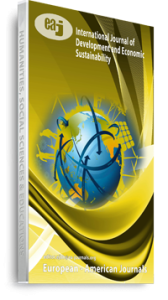Tax revenues are important income sources for governments in most countries. because of the shortage of full tax compliance, government budgets are unbalanced in most countries, and therefore the gap between revenue and expenditure is increasing. the main question that was trying to answer during this paper was “why do taxpayers evade taxes?” The study was designed to spot the determinants of evasion (focusing on category “A”) on government income in East Addis Ababa. A structured questionnaire was accustomed collect data from a sample of 371 taxpayers who were selected by employing a non-random sampling technique. A binary logistic regression model was employed to research the info and therefore the results of the study revealed that there’s a statistically significant association between evasion and eight determinant variables (tax education, service quality, tax rate, income level, and fairness of legal system, financial Constraint, audit, and penalty). evasion has positively suffered from the rate, income level, audit, and fairness of the legal system and is negatively influenced by financial Constraints, tax education, service quality, and penalty. supported the finding of the study the subsequent policy recommendations are forwarded. These are the government should reduce the rate, and therefore the tax delivery system should be automated to make sure efficiency and quality delivery among money others.
Keywords: East Addis Ababa, category “a”, naming and shaming, tax compliance, tax evasion defaulters, tax office, taxpayers

